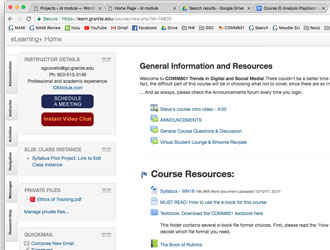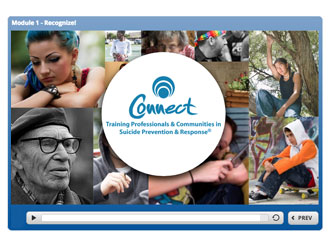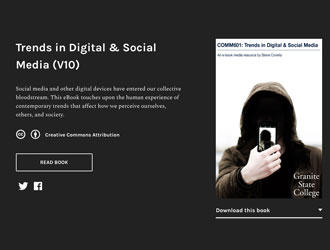NAMI NH Suicide Prevention: F2F to Online
Granite State College was contracted in 2015 by the National Alliance for Mental Illness (NAMI) to convert their flagship face-to-face (F2F) Connect Suicide Prevention training program to a fully online training program. The completed program is intended to reach several cohort groups through a self-service payment gateway at any location in the U.S. This would ultimately extend NAMI’s leadership in suicide prevention training beyond its New Hampshire flagship headquarters.
The project involved the following key challenges:
- Translation of F2F presentation resources into effective standalone, fully asynchronous, online interactive e-learning media hosted in a Moodle course environment.
- Redesign and development of suicide prevention training within the principles of online instructional design best practices.
- Constructing meaningful instructional messaging with easy to use interactive user experiences within the affordances of desktop/laptop and mobile device ecologies.
- Collaborating with subject matter experts to maintain the integrity of key instructional takeaways.
- Advocating the contractual interests of Granite State College within the scope of the contractual obligations and limitations.
Results, impact, and lessons learned:
- A fully CEU accredited asynchronous online program for several separate cohorts of trainees has been launched as of December, 2017. NAMI NH has an additional revenue stream beyond their F2F offerings that requires far less hands-on logistics to employ.
- Suicide prevention training is now available on-demand to mental health clinicians, school administrators, youth organization staff, medical personnel, and other interested individuals.
- The process of producing the training modules required an intense level of instructional design refinement with the SME to the extent that the online training program’s narrative and language has been used to refine the F2F training programs.
- Lesson Learned: Fully on-demand interactive online training programs can be designed and developed to meet the needs of contemporary audiences, but it requires intense commitment and communication between the client and the e-learning designer.



